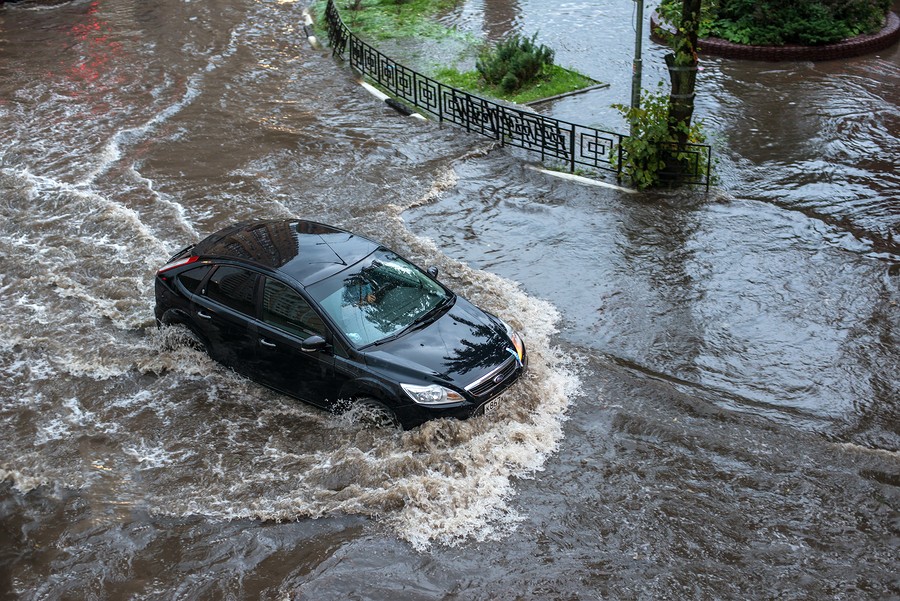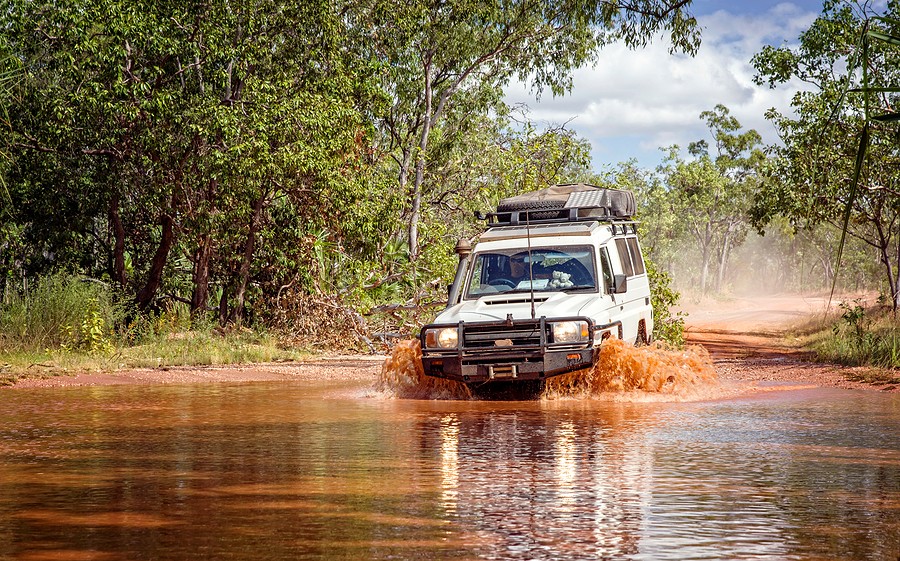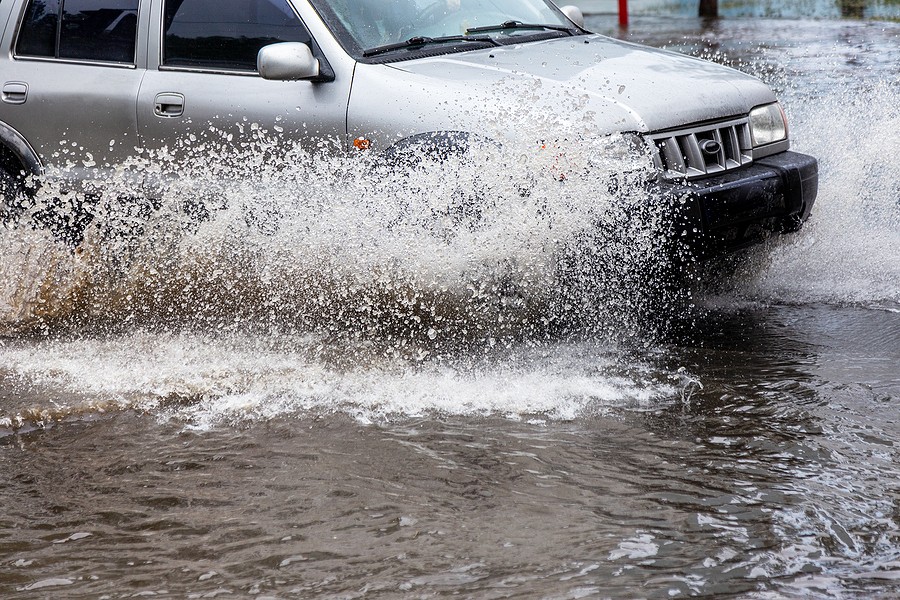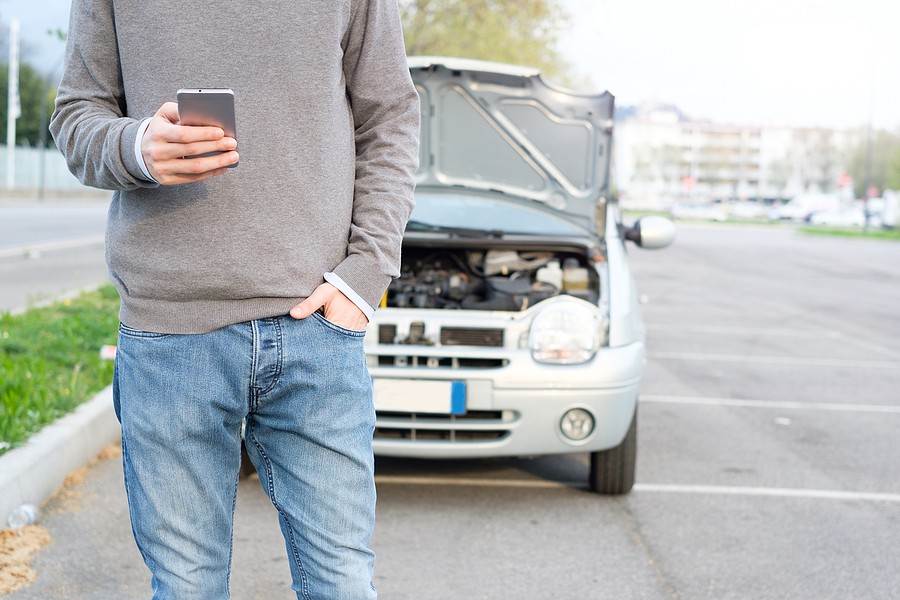If you're living in areas around islands and experiencing hurricanes, one of the first questions that might come to you is how to prepare a car for a hurricane. There are tips for before, during, and after the hurricane:
You've probably heard in the news about all that's happening around Florida regarding the hurricane that resulted in devastating consequences for people, properties, and vehicles.
Unfortunately, with climate change, we're going to see more and more hurricanes, and they're going to hit these island areas more and more.
That's why it's very important for those living in island areas to prepare and protect themselves.
While there are many recommendations on how to protect your property and your family, there are fewer details on how to protect your vehicle and keep it from getting water damage.
This article provides recommendations from automotive experts about how to prepare a car for a hurricane. The recommendations include tips before, during, and after the hurricane.

How to prepare a car for a hurricane? Before, during, and after tips
Living in island areas is one of the biggest dreams for many people. While these areas are great for enjoying the summer vacation, they have consequences, especially if you decide to have them as your home.
Hurricanes are one of the biggest challenges climates brings between now and then. That's why it's critical for you as a resident in these areas to familiarize yourself with the different tips to protect yourself before, during, and after the hurricane.
This article aims to help you protect your vehicle and prevent it from getting completely damaged during a hurricane. These tips are just recommendations from automotive experts, and while they might apply to some people, you can prepare your own and pick and choose what works best for you.

1- Before the hurricane
You must understand that living around islands and beaches means you must always be prepared. Therefore, it's critical that you be proactive about the problem and help yourself and your vehicle get ready for the hurricane season.
Vehicle checks
The first and most important thing you must do is ensure that your vehicle is ready for the coming hurricane season. You must check the different fluid levels, confirm that the wipers work properly, and ensure that your vehicle has enough fuel.
Insurance checks
Since you live in an area experiencing more hurricanes, you want to make sure that you choose the right insurance policy. Some more expensive insurance policies will take care of anything that could happen to your vehicle, and considering the area, it could be worth it.
The other thing you need to consider is taking pictures of your vehicle before the hurricane hits. This becomes very handy when you want to talk to your friend's company about what happened to your vehicle and explain the condition of your vehicle before the hurricane.
Safety check
Finally, protecting your vehicle is not the only thing you must focus on because you need to ensure that you and your family are safe. That's why if you were planning to drive during the hurricane, which is not always recommended, you want to ensure that your vehicle has all the safety kits needed.
For example, you might want to have some extra food or drink for yourself and the passengers. Also, you want to ensure that you have the safety elements you need to keep your vehicle going, like the batteries and the jump start.
There are plenty of recommendations for what exactly you need to put in your vehicle in preparation for the hurricane, and we've discussed many of them in detail in other articles.

2- During the hurricane
Now it's a stressful time! Once your vehicle is ready and prepared for the hurricane, dealing with it has its challenges, and at that time, you might not be focusing on your vehicle, but there are a couple of things you must keep in mind.
Choose your parking area
If you use two parking vehicles outside, this time you want to park them inside on a higher area or probably inside your garage where there is a secured closed roof. Again, this is because you don't want debris or other structures to fall with the flood destroying your vehicle.
Empty your garage
If your vehicle doesn't fit inside your garage or has multiple vehicles, you might want more space in your garage and remove other items that you don't necessarily need to keep in the garage.
Protect the garage door
While we might have the strongest garage door, that's not always the case for everybody. Therefore, some experts recommended putting some heavy elements behind the garage to keep the door closed and prevent structures from falling inside your garage and destroying your vehicle.
You can try many things, but the best thing that worked for many people is using sandbags. Obviously, you can try any item in your garage; the situation will depend on how much time you have left before preparing for the hurricane.
The last thing you want to do is to park your vehicle under a tree or in a location where objects might fall. In addition, hurricanes are very harsh and might damage the entire tree, which could become a source of risk for damaging your vehicle.
If you can't park your car inside your garage or if you don't have a covered garage, you can choose an area between buildings that is relatively safer than having your vehicle parked outside. Keep in mind that many people will try to hide their vehicles, and the faster you act, the more chances you'll have to find a good safe spot.
Avoid driving
You last want to use your vehicle and drive during the hurricane. But, unfortunately, that's not always the case.
Automotive experts recommend keeping your vehicle inside and avoiding driving through the flood because water can destroy the electric components. In addition, it might cause some hazardous situations that could impact your safety.

3- After the hurricane
Once the hurricane is cleared out, and you and your family are safe, the next step is to check on your vehicle.
Check the vehicle status
You must take a closer look at your vehicle and check the different elements to see if it was damaged from the flood or not. Sometimes little rain can get inside sensitive components and cause severe damage.
For instance, look at the different components around the vehicle and see if the upholstery flooded with water. Also, look under the hood to see if the engine compartment got wet and whether the electric system had some problems.
If you feel that you're not an expert in identifying the problem's extent, you can still consult your mechanic and have him do the job for you. However, you want to avoid driving the vehicle until you talk to the mechanic and explain the situation.
Avoid turning on the engine
The last thing you want to do after a hurricane is to start your vehicle. If the vehicle got some water inside it, turning on the engine results in severe damage and might force the water to get inside sensitive components And destroy them.
The problem with turning on the engine might not only be related to damaging the vehicle. It could cause some hazardous situations that might impact your safety. For example, if there are some uncovered wires and you turn on the vehicle, it might cause an electric shock.
Dry out your vehicle
If you find out your vehicle is wet and some water gets inside, you need to ensure that your vehicle is dried out completely because the more water sits inside, the more problems it can cause and the higher your payment for the maintenance.
Drying out your vehicle might be difficult, especially if water gets to major components. In that case, you might want to hire a professional who can come to you and help you dry out the vehicle or probably toy of the vehicle to the nearest repair shop, and then professionals can help you dry it out.
Consult your mechanic
Once you have an idea about what's going on in your vehicle and once you have a good understanding of whether the water reached it or not, the next step is to call your mechanic.
You must describe the situation to your mechanic carefully and get his input about whether you can drive the vehicle to his mechanic shop or tow it instead. Driving your vehicle when it's not supposed to cause additional damage is that you don't want to deal with.
For example, you need to tell your mechanic whether the water reached this instead of the components or not. You can also explain that the water did not get inside, and everything that got wet is just the vehicle's exterior.
Once you are at the mechanic confirms that you can start your car, you can then do so and then have him still take a closer look at the vehicle to confirm that there is nothing hidden you're not paying attention to it.
Consult your insurance company
If you feel that water caused severe issues in your vehicle, you want to talk to your insurance company as soon as possible. The more anger you wave, the longer it will take because imagine how many people are reaching out to insurance companies by now.
You must file a claim immediately once you confirm that your policy covers your damages because if it's not, then it will be a waste of time for you to talk to them and explain the situation.
Having your pre-hurricane photos can help you here because they will be evidence of your vehicle's condition and the severity of the damage that the hurricane caused to your vehicle.
That's why it's critical to use the right insurance plan that covers you in these situations if you live in areas exposed to hurricanes. So, we mentioned before that the plan would be a little bit more expensive than others, but if you think about it long-term, it's worth it.

Final thoughts
Hurricanes can be extremely challenging for many people. Those living in areas exposed to more hurricanes must understand what needs to be done before, during, and after the hurricane.
This article provides detailed tips on how to prepare your car for a hurricane. It highlights all the recommendations you must implement before the hurricane, what needs to be done during the hurricane, and how to take care of your vehicle after the hurricane.
If you realize that your vehicle is completely damaged from the hurricane and you feel that your insurance company will not cover you for that, that's not the end of the world because you can still sell your vehicle and take advantage of the remaining value.
It will not be easy to find someone willing to purchase your water-damaged vehicle; in that case, one of your best resource will be a cash cars buyer who will buy your car no matter what!
Cash Cars Buyer is one of the top-rated car removal companies in the nation that guarantees to pay you the top dollars and provide you with free towing despite your living location around the United States.
Our process is very straightforward and doesn't take more than a couple of days to get your car removed safely and for the most money.
All it takes you is to:
- Describe your car's type and condition
- Receive our instant free quote
- Accept the quote
- Get your car removed and receive your cash payment on the spot!
To learn more about our process and our team, you can reach out to us by calling us at (866) 924-4608 or by visiting our home page click on the free instant online offer.



